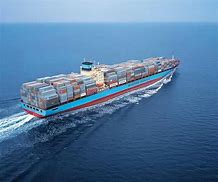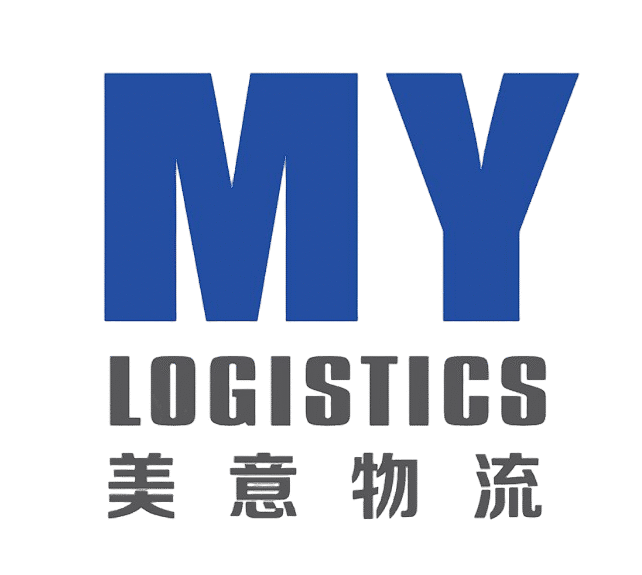Stop Customs Delays at Ports: The Ultimate Country-by-Country Import Document Guide
Your container, packed with €150,000 of Italian leather goods, lands in Miami. Instead of moving to your warehouse, it gets flagged. Why? The Commercial Invoice lacked a tiny but critical detail required by US Customs – the “Seller’s Entity Type.” Days tick by. Demurrage charges pile up at $325/day. Your customer cancels the order due to delays. This isn’t a rare horror story; it’s a daily reality costing importers billions . Forget vague advice. This is the actionable , country-specific guide used by savvy European and North American businesses to clear customs seamlessly in the USA, EU, UK, Canada, and Australia. Bookmark this page – it’s your compliance lifeline. Why Generic Document Lists Fail You (The Real-World Gap) Most blogs just regurgitate “you need a Commercial Invoice and Bill of Lading.” That’s like saying “you need tools to build a house” without mentioning which specific wrench size. The devil is in the country-specific, constantly evolving details. Here’s what actually causes clearance nightmares: Incorrect or Missing Importer of Record (IOR) Information: Is the IOR your foreign supplier, your local subsidiary, or a customs broker? Get this wrong (especially in the US & Canada), and shipment gets held. HS Code Errors (The Silent Cost Killer): Misclassifying your goods by even one digit can trigger audits, wrong duty payments (over or under), and massive delays. The EU imposes fines up to €10,000 for repeated errors. Missing Mandatory Certifications & Statements: Think EU FLEGT timber declarations, US FDA prior notices for food, or Australia’s BICON import permits. These aren’t optional. Origin Certification Mishaps: Claiming preferential duty rates under USMCA or EU FTAs? Without the exact , often country-specific Certificate of Origin format (e.g., EUR.1 vs. Statement on Invoice), your savings vanish and delays occur. Digital System Ignorance: Filing a paper C88 in the UK? Good luck. You must use CDS now. Not using ACE in the US? Expect delays. Actionable Tip: Never rely solely on your supplier’s paperwork. Verify every document against the latest official requirements of the destination country. Customs authorities update rules constantly. Deep Dive: Country-Specific Document Must-Haves & Pitfalls 1. United States (USA) – Customs and Border Protection (CBP) Non-Negotiable Essentials: Accurate Commercial Invoice: MUST include: Detailed seller/buyer info (full legal names, addresses, EIN/SSN if applicable), Precise goods description (material, use), Country of Origin for EACH ITEM (not just “Made in China”), Correct 10-Digit US HTS Code , Value per item & total (Incoterms clearly stated), Seller’s signature & date. Bill of Lading (Air Waybill or Ocean B/L): Must match the Commercial Invoice details exactly . Packing List: Item quantities, weights, carton counts must align perfectly with Invoice & B/L. Discrepancies = red flag. Crucial Additions (Often Missed): Importer Security Filing (ISF-10 / “10+2”): Filed by the IMPORTER (or their agent) 24+ hours BEFORE vessel departure. Failure = $5,000-$10,000 fine + hold. Customs Power of Attorney (POA): Grants authority to your customs broker to file on your behalf. Must be properly executed. FDA, EPA, USDA Forms: For food, drugs, cosmetics, chemicals, plants, animals. Check requirements before shipping. Pitfall Alert: Incorrect origin marking (“Made in…”) leads to severe penalties. Ensure labels are permanent and accurate. Digital Must: All filings via ACE Portal . Ensure your broker is ACE-certified. 2. European Union (EU) – Focusing on Major Ports (Rotterdam, Hamburg, Antwerp) Non-Negotiable Essentials: Commercial Invoice: Requires full EU Importer VAT number, Detailed goods description, Correct EU Combined Nomenclature (CN) Code (8 digits), Value, Country of Origin per item, Incoterms.  Must state currency (usually EUR). Bill of Lading/Air Waybill Packing List Single Administrative Document (SAD / Customs Declaration): Usually filed electronically by your customs representative via the relevant national system. Crucial Additions (Often Missed): EUR.1 Movement Certificate OR Origin Declaration: Essential for claiming preferential duty rates under EU FTAs. Format is strict. Supplier must issue correctly. Import VAT & Duty Calculation Proof: Your broker provides, but understand potential liability. Product-Specific Certificates: CE Marking evidence, Phytosanitary certs (plants), FLEGT (timber), etc. Research your goods! Pitfall Alert: IOSS (Import One-Stop Shop): For distance sales of goods <= €150 shipped directly to EU consumers. If you sell via platforms like Amazon, understand who (you, the platform?) is responsible for IOSS registration and VAT collection/remittance. Get this wrong, consumer pays double VAT = lost sales & anger. Digital Must: National systems like AGS in Germany, DMS in Netherlands. EU ICS2 for pre-arrival security data is mandatory and complex. 3. United Kingdom (UK) – Post-Brexit Reality Check Non-Negotiable Essentials: Commercial Invoice: Requires UK Importer EORI number, Detailed goods description, Correct UK Global Tariff (UKGT) Code , Value, Country of Origin per item, Incoterms. Bill of Lading/Air Waybill Packing List Crucial Additions (Often Missed): UK-Specific Customs Declaration: Filed via CDS (Customs Declaration Service) (CHIEF is being phased out). Requires detailed commodity codes and procedure codes. Proof of Origin: For UK trade deals (e.g., UK-EU TCA, UK-Japan). Requires specific supplier declarations referencing the relevant agreement chapter . Generic “Origin” statements are rejected. VAT Handling: Understand Postponed VAT Accounting (PVA) – it improves cash flow. Ensure your declaration is marked for PVA if eligible. Pitfall Alert: Goods moving between Great Britain (GB) and Northern Ireland (NI) face complex NI Protocol/Windsor Framework rules . Special declarations are often needed. Don’t assume “UK” rules apply uniformly. Digital Must: CDS is mandatory. Ensure your broker is proficient. 4. Canada – CBSA Focus Non-Negotiable Essentials: Commercial Invoice: Requires full Canadian Importer name/address, Detailed description, Correct 10-Digit HS Tariff Code (Canadian version) , Value, Country of Origin per item, Incoterms.
Must state currency (usually EUR). Bill of Lading/Air Waybill Packing List Single Administrative Document (SAD / Customs Declaration): Usually filed electronically by your customs representative via the relevant national system. Crucial Additions (Often Missed): EUR.1 Movement Certificate OR Origin Declaration: Essential for claiming preferential duty rates under EU FTAs. Format is strict. Supplier must issue correctly. Import VAT & Duty Calculation Proof: Your broker provides, but understand potential liability. Product-Specific Certificates: CE Marking evidence, Phytosanitary certs (plants), FLEGT (timber), etc. Research your goods! Pitfall Alert: IOSS (Import One-Stop Shop): For distance sales of goods <= €150 shipped directly to EU consumers. If you sell via platforms like Amazon, understand who (you, the platform?) is responsible for IOSS registration and VAT collection/remittance. Get this wrong, consumer pays double VAT = lost sales & anger. Digital Must: National systems like AGS in Germany, DMS in Netherlands. EU ICS2 for pre-arrival security data is mandatory and complex. 3. United Kingdom (UK) – Post-Brexit Reality Check Non-Negotiable Essentials: Commercial Invoice: Requires UK Importer EORI number, Detailed goods description, Correct UK Global Tariff (UKGT) Code , Value, Country of Origin per item, Incoterms. Bill of Lading/Air Waybill Packing List Crucial Additions (Often Missed): UK-Specific Customs Declaration: Filed via CDS (Customs Declaration Service) (CHIEF is being phased out). Requires detailed commodity codes and procedure codes. Proof of Origin: For UK trade deals (e.g., UK-EU TCA, UK-Japan). Requires specific supplier declarations referencing the relevant agreement chapter . Generic “Origin” statements are rejected. VAT Handling: Understand Postponed VAT Accounting (PVA) – it improves cash flow. Ensure your declaration is marked for PVA if eligible. Pitfall Alert: Goods moving between Great Britain (GB) and Northern Ireland (NI) face complex NI Protocol/Windsor Framework rules . Special declarations are often needed. Don’t assume “UK” rules apply uniformly. Digital Must: CDS is mandatory. Ensure your broker is proficient. 4. Canada – CBSA Focus Non-Negotiable Essentials: Commercial Invoice: Requires full Canadian Importer name/address, Detailed description, Correct 10-Digit HS Tariff Code (Canadian version) , Value, Country of Origin per item, Incoterms.  Seller name/address. Bill of Lading/Air Waybill Packing List Crucial Additions (Often Missed): Certificate of Origin (Form B232 or Supplier Declaration): Critical for USMCA (CUSMA) preferential duty claims. Must be completed exactly as per CBSA requirements. Signed by exporter in the origin country . CBSA Release Priorities (RIV, LVS, FROB): Know which applies to expedite clearance (e.g., Release on Minimum Documentation – RMD). Provincial Requirements: Especially for food, alcohol, agricultural products. Pitfall Alert: Incorrect USMCA origin claims lead to duty reassessment + penalties. Ensure your supplier understands the “Rules of Origin” for your product. Digital Must: CBSA uses CARM (CBSA Assessment and Revenue Management). Importers must register for a CARM R2 account to manage duties/taxes and authorize brokers. 5. Australia – ABF Focus Non-Notiable Essentials: Commercial Invoice: Requires Australian Importer ABN/ACN, Detailed goods description (including composition), Correct Australian Tariff Classification (10 digits) , Value, Country of Origin per item, Incoterms. Seller info. Bill of Lading/Air Waybill Packing List Crucial Additions (Often Missed): Import Declaration (N10): Filed electronically usually by broker via ICS (Integrated Cargo System) . BICON Check: Mandatory. Check the Biosecurity Import Conditions System (BICON) for every shipment. Many goods need permits (timber, plant products, animal products, food). Failure = seizure/destruction. Tradex Order (If Applicable): For goods imported for export/repair. Pitfall Alert: Australia has extremely strict biosecurity laws . Undeclared wood packaging, seeds, soil contamination, or food residues can lead to instant holds, costly treatments, or destruction. Cleanliness is paramount. Digital Must: ICS and BICON are central. Your “Never Get Held Up Again” Pre-Shipment Checklist (Download & Use Every Time!) Don’t trust memory. Verify these BEFORE goods ship:
Seller name/address. Bill of Lading/Air Waybill Packing List Crucial Additions (Often Missed): Certificate of Origin (Form B232 or Supplier Declaration): Critical for USMCA (CUSMA) preferential duty claims. Must be completed exactly as per CBSA requirements. Signed by exporter in the origin country . CBSA Release Priorities (RIV, LVS, FROB): Know which applies to expedite clearance (e.g., Release on Minimum Documentation – RMD). Provincial Requirements: Especially for food, alcohol, agricultural products. Pitfall Alert: Incorrect USMCA origin claims lead to duty reassessment + penalties. Ensure your supplier understands the “Rules of Origin” for your product. Digital Must: CBSA uses CARM (CBSA Assessment and Revenue Management). Importers must register for a CARM R2 account to manage duties/taxes and authorize brokers. 5. Australia – ABF Focus Non-Notiable Essentials: Commercial Invoice: Requires Australian Importer ABN/ACN, Detailed goods description (including composition), Correct Australian Tariff Classification (10 digits) , Value, Country of Origin per item, Incoterms. Seller info. Bill of Lading/Air Waybill Packing List Crucial Additions (Often Missed): Import Declaration (N10): Filed electronically usually by broker via ICS (Integrated Cargo System) . BICON Check: Mandatory. Check the Biosecurity Import Conditions System (BICON) for every shipment. Many goods need permits (timber, plant products, animal products, food). Failure = seizure/destruction. Tradex Order (If Applicable): For goods imported for export/repair. Pitfall Alert: Australia has extremely strict biosecurity laws . Undeclared wood packaging, seeds, soil contamination, or food residues can lead to instant holds, costly treatments, or destruction. Cleanliness is paramount. Digital Must: ICS and BICON are central. Your “Never Get Held Up Again” Pre-Shipment Checklist (Download & Use Every Time!) Don’t trust memory. Verify these BEFORE goods ship:
✅ Importer of Record (IOR): Defined correctly? Contact info 100% accurate?
✅ Commercial Invoice: Seller/Buyer Full Legal Names & Addresses? Destination Country HS/CN/UKGT/Tariff Code? (Verified independently!) Country of Origin Stated PER ITEM? Correct Value & Currency? Incoterms Clear? Detailed Physical Description? (Material, Use, not just “Part No. 123”) Signed & Dated?
✅ Bill of Lading/AWB: Consignee = IOR? Details exactly match Invoice?
✅ Packing List: Quantities/Weights match Invoice & B/L exactly?
✅ Origin Docs: Needed for FTA discount? Correct, country-specific form? (e.g., EUR.1, USMCA Cert, UK Supplier Dec)? Signed by EXPORTER?
✅ Permits/Certifications: Checked destination country’s system (BICON for AU, FDA for US, etc.)? Obtained before shipment?
✅ Pre-Arrival Filings: ISF filed for US? ENS filed for EU? ACI for CA? Done correctly and on time?
✅ Power of Attorney (POA): Granted to your customs broker for destination country?
✅ Digital Requirements: Know the mandatory system (ACE, CDS, CARM, ICS)? Broker proficient? “See This Missing Field? It Cost Me $8,000.” Get a Free Document Review. Stop guessing if your paperwork is bulletproof. Our customs specialists spot the critical errors before your shipment sails.
Contact Us:WhatsApp :+86 15999718863
Related Posts
US Customs Clearance for Amazon FBA: Tips to Get Your Inventory Approved Quickly
US Customs Clearance for Amazon FBA: Tips to Get Your…
China Plus One Customs Guide: Navigating Vietnam, India & Mexico Import Challenges
China Plus One Customs Guide: Navigating Vietnam, India & Mexico…
How to Fix Common Customs Clearance Delays: A Step-by-Step Guide for E-Commerce Sellers
How to Fix Common Customs Clearance Delays: A Step-by-Step Guide…
